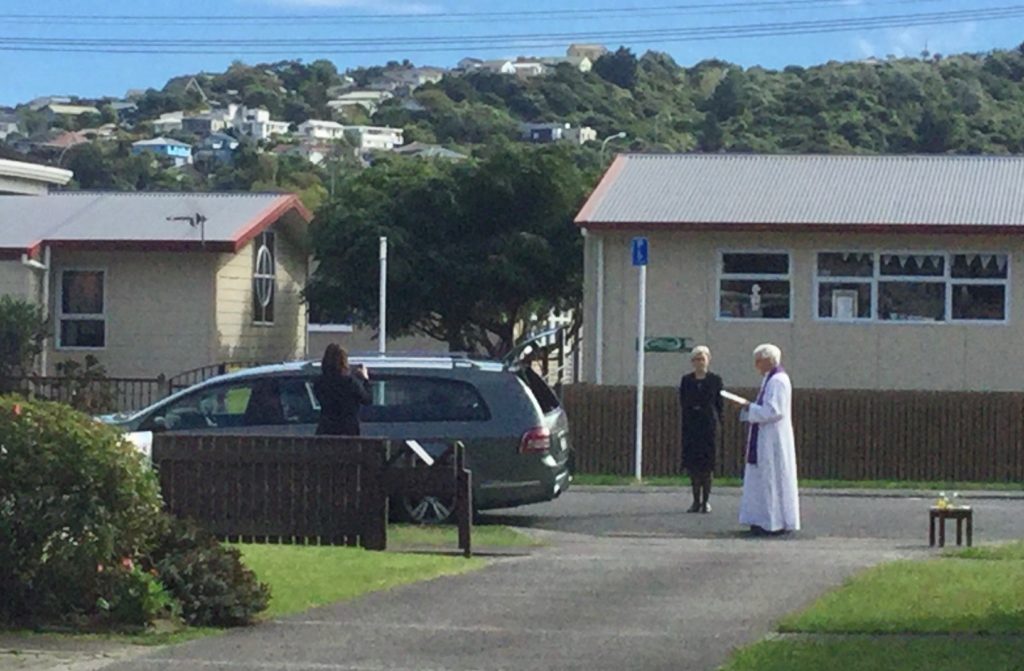Burying the dead is one of the corporal works of mercy, but physically attending funerals is not possible during the Covid-19 lockdown. Here are two examples of how accompanying grieving families has changed.
Being present at tangi is a significant aspect of Archdiocese of Wellington Vicar for Māori Danny Karatea-Goodard’s life. In the first two weeks of the lockdown, he remotely accompanied whānau in four tangi.
The first concerned a young woman in her mid-20s who lost her partner just as the country moved into the level 4 lockdown. She was in a lockdown bubble only with a few other young people, and after the autopsy they had only 15 minutes to spend with her partner’s body. Not being able to gather with wider family was traumatic.
“They weren’t strong on tikanga, but they knew they needed something, they had a sense that something needed to be said,” explained Danny. He helped them prepare a short service, and provided some words of comfort over Facebook messenger.
“Even though we were not able to be there kanohi ki te kanohi (face to face), we were reaching out using alternatives. It’s not the best way of doing things but it’s what we can do.”
Danny said he was able to train up the younger people to offer words of farewell and prayer. “Families themselves are drawing on their own resources.”
Meanwhile, in Plimmerton , Fr Maurice Carmody of St Theresa’s parish reached out to local funeral directors, as the church is on State Highway 1, on the way to Whenua Tapu cemetery, offering that if it would help families, he was available to say funeral prayers as funeral directors drove past. One family took him off on the offer the following day.
Fr Maurice met the two funeral directors on the road outside his home which is near the church. Standing near the open rear door of the hearse, he prayed the prayers of final commendation while the family watched and prayed via videophone.
“I was able to pray the prayers and bless the remains of their loved ones knowing they were there. It was a beautiful experience, and it was something I felt graced to do.”
Fr Maurice says the practice of burying the dead as a work of mercy has a long tradition in the church. “It’s a way of walking with the people who are grieving. It’s a time when you get close to people. It’s a grace, something you can do with them. It’s about being with them.”
In most situations, clergy and lay leaders have been unable to be physically present to perform funeral rites, and technology cannot overcome all restrictions during the Covid-19 lockdown. However, grieving families are invited to contact parishes to link with whatever support is available to be provided in these circumstances. When the country moves to Alert Level 3 the government has said that 10 people will be able to be present at a funeral, which will help families although many will have difficulty deciding who the ten will be.
